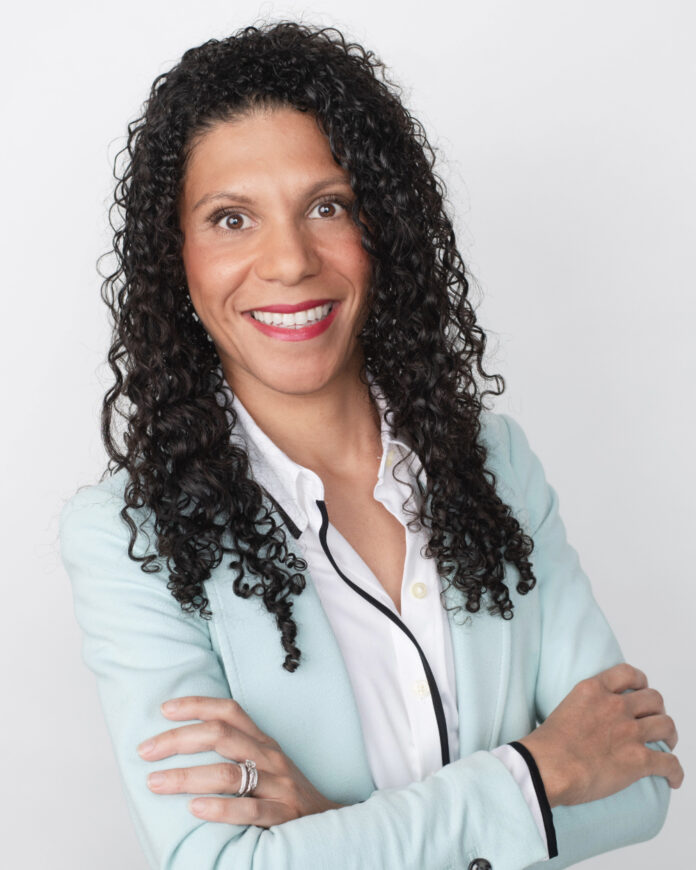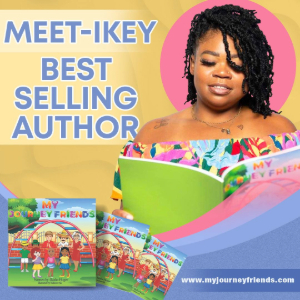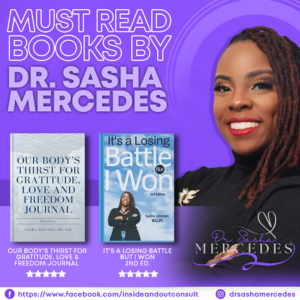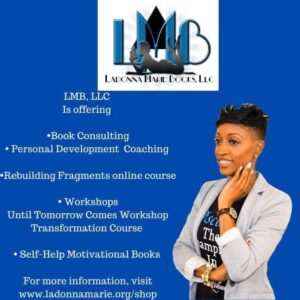Shawna Wells’ upbringing and personal experiences significantly shaped her vision for 7Gen Legacy Group, and B is for Black Brilliance. As a middle school student, she cherished reading but was deeply impacted by the lack of Black representation in children’s books. Discovering “Roll of Thunder, Hear My Cry”, the only book centering Blackness, made her crave more stories reflecting her identity. This was the catalyst to her teaching career, where she found that even years later, the representation of Black characters in children’s stories was still scarce. These experiences fueled her commitment to celebrate Black brilliance and ensure future generations would see themselves reflected in literature and leadership.
Shawna founded B is for Black Brilliance to showcase the genius of Black creators, activists, and leaders, aiming to shift the narrative. Through this initiative and her work with 7Gen Legacy Group, she empowers pro-Black families by providing resources that help children recognize their inherent brilliance. Her children’s book, “B is for Black Brilliance,” is part of this mission, highlighting the achievements of Black figures from A to Z. Through both her companies, Wells addresses the gaps in representation and leadership, ensuring that Black children and their families can thrive and embrace their potential.
How did your upbringing or personal experiences shape your vision for 7Gen Legacy Group and B is for Black Brilliance?
Wells: As a middle school kid, I loved to read. I loved the smell of the school library and the ritual of visiting it every week to check out new books. Our school must have had a sizable budget for book buying, as our librarian would excitedly share the latest arrivals with us each week. However, as time passed, I discovered very few characters in those books who looked like me. “Roll of Thunder, Hear My Cry” was the only book I could find centered on Blackness, and I checked it out countless times, feeling an unexplainable connection to its characters. My well-meaning teacher encouraged me to explore other books, but I always returned to that one, longing for more stories that reflected me.
As a teacher in 2004, I was shocked to find that so few children’s books centered Blackness. In 2017, only 11% of children’s books featured significant Black characters, and even fewer were written by Black authors. My 20 years as an educator showed me the deep resource divide affecting Black students, fueling my desire to create change.
The senseless murder of George Floyd was a turning point for me. It hit me at my most vulnerable and ignited what I had always known: the world wasn’t built for Black people or our ancestors. I began collecting stories of Black creators, inventors, activists, and more to process it. I was already running my company, 7Gen Legacy Group, which helps leaders and leadership teams make clear, legacy-aligned decisions, and my clients were also looking for ways to heal. Talking about Black brilliance across all pockets of society was a balm for us all.
This practice led to the creation of B is for Black Brilliance, a children’s book using the alphabet to showcase the brilliance of our ancestors and to inspire future generations. I took it a step further and founded the company B is for Black Brilliance to help pro-Black families change the narrative about Blackness from in spite of to because of, and to help Black kids recognize and claim their inherent brilliance.
Can you discuss a particularly impactful project or initiative you’ve led through 7Gen Legacy Group?
Wells: In 2023, 7Gen ran a legacy pilot project with high school juniors and seniors at an Indianapolis high school. Over six weeks, students explored personal lineages and articulated their personal legacies, which they used to align their habits, mindsets, beliefs, and actions.
Impact on students included:
- 90% of students agreed that they know what a legacy is, compared to 57% before experience.
- 83% of students agreed that they are thinking about the legacy they aim to live and leave, compared to 68% before experience.
The pilot was adopted, and the high school expanded the program to run as a year-long course in ninth grade. Students tuned into legacy have improved mental health, are more informed citizens, and are engaged leaders. These qualities impact our companies, industries, and communities for generations to come.
As the founder of B is for Black Brilliance, what motivated you to write the children’s book and create resources for pro-Black families?
Wells: Writing B is for Black Brilliance was a form of healing for me. I wanted to write that book to disrupt the narrative that Black brilliance happens “in spite of” to “because of” and provide examples – A through Z, past and present – of how our brilliance helps society progress.
I started to see that the book was the tip of the iceberg and founded B is for Black Brilliance as a movement. We equip Black children and their caregivers with the knowledge of their inherent worth and potential, nurturing a generation that will lead with confidence and power.
We do that by centering brilliance and developing exercises, activities, and tools designed to develop critical thinking, character, and agency. We also offer a membership for caregivers and educators to connect in a community of like-minded caregivers. This is empowerment through education on a melanized level, and ultimately, it gives our Black children the inner tools and strength to shine in a society that too often dims their light.
Our community members come to us for curriculum and conversation about deepening their connection with their children and exploring different communication and parenting styles. What motivated me to found B is for Black Brilliance and write a book by the same name is to support pro-Black caregivers in raising Black children who love and respect themselves, know their brilliance, and see past the boundaries that our society places on them.

How has your experience in senior leadership positions at organizations like 7Gen Legacy Group, B is for Black Brilliance, Pahara Institute, The Management Center, KIPP Philadelphia, and Teach For America shaped your approach to leadership and advocacy?
Wells: Before stepping into leadership at Teach for America, I was a corps member in the classroom with them in Las Vegas. One thing about me—I’m all about learning the issues and then taking action. As a teacher, I started seeing up close the barriers that kept students from getting the education they deserved. That led me to join the TFA board, where I could push for real, meaningful change that would make a difference for teachers and students.
Being on that board really shaped how I think about leadership and advocacy. It was a shift from focusing on the classroom to understanding the bigger picture and figuring out how to support from a different angle. Many of us are focused on making immediate changes, which is so important. But for even bigger impact, we’ve got to think about those who come after us. When we think in terms of generations, it helps teams dream big and aim for goals that can truly shake things up for the better.
Being on the TFA board was a gateway to other opportunities to give back, like joining national boards such as The Highland Project and the University of Vermont College of Education and Social Services. What started as leadership and advocacy at a community level led to opportunities on national stages. Through these positions, I’ve learned that understanding the legacy you aim to live and leave is a fundamental tool for decision-making and impact. A personal legacy will guide you like a North Star to live in high alignment and high joy.
What strategies do you use to ensure that your initiatives align with the needs and aspirations of the Black community?
Wells: Well, for one, I am my target audience! I’m a busy Black entrepreneur that is raising confident, race-conscious children. I’m always looking for ways to deepen connection with them, turn on their critical thinking skills, and help them be confident and self-aware in their world.
We also talk with and solicit feedback from our B is for Black Brilliance members to ensure that what we offer is what they need and want to raise creative, innovative, and brilliant kids. This summer, we ran a short survey about what challenges Black and pro-Black caregivers face, what tools they use for raising and educating their children, and when they feel most powerful.
Our strategy is to provide relevant and powerful tools for us. We have a lot of experience to inform it, and we’re responsive to the caregivers in our community. We really are committed to building something that is for us and by us.
What are some future projects or goals you’re excited about for 7Gen Legacy Group and B is for Black Brilliance?
Wells: We’ve got big goals! You know the plant app that helps you identify its name and how much water and sun it likes? I’d love to do something similar but with a B is for Black Brilliance twist. So, for example, using this app, you could hold your phone up to a street light, and information about inventor Garrett Morgan would pop up. Black brilliance is so deeply interwoven into our everyday that it’s hiding in plain sight, and this app would change that.
I’d love to see B is for Black Brilliance take the lead in creating the largest poll of Black caregivers. Data rules the world—it’s king, queen, and the whole royal court. To drive real change, we need to gather insights from Black caregivers that can shape everything from product development to political strategies and even guide how AI responds to us.
We’re keeping a close eye on AI because language models like ChatGPT pull from the internet, which, let’s be honest, is mostly filled with white perspectives. That creates an echo chamber that keeps reinforcing the same old narrative. It’s time we step in and change that.
Too often, studies about Blackness in America start from a place of deficiency, focusing on our challenges rather than our strengths, achievements, and potential. By leading this effort, we can shift the questions being asked and, more importantly, shift the narrative toward our brilliance.
- Shawna Wells LinkedIn: https://www.linkedin.com/in/shawna-wells/
- B is for Black Brilliance
- Website: https://bisforblackbrilliance.com/
- IG, FB, LI: @bisforblackbrilliance
- 7Gen Legacy Group
- Website: https://7genlegacy.com/











